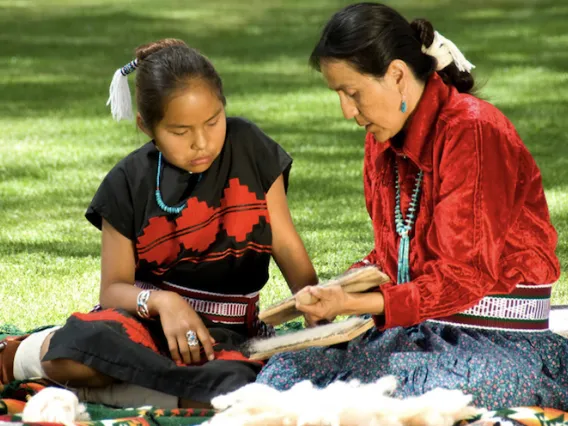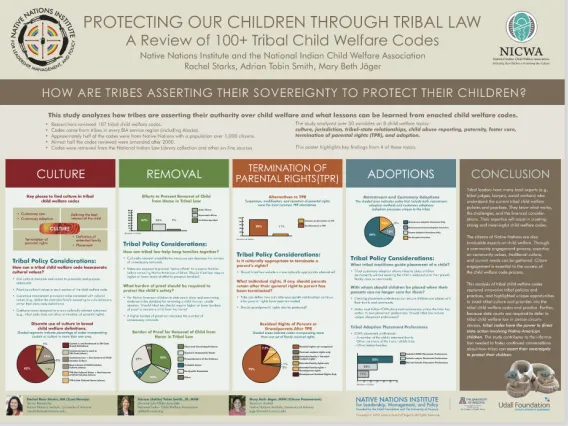CHILDREN & YOUTH
"Restoring Aboriginal ways of doing things, especially in caring for children, is essential for the health and well-being of children and families."
–Ardith Walkem
Over 35 years ago, Congress passed the Indian Child Welfare Act of 1978 (ICWA). ICWA counters harmful colonial, assimilative child welfare policies and practices by affirming tribes’ authority to create their own laws about child welfare. ICWA recognizes tribes’ exclusive jurisdiction over tribal-citizen children living on tribal lands and their concurrent jurisdiction (with states) over tribal-citizen children living outside tribal lands. Recent legislation (e.g., the Fostering Connections to Success and Increasing Adoptions Act; P.L. 110-351) supports tribes’ authority to manage child welfare programming.
These federal policies provided a starting point for hundreds of Native nations to craft or re-establish child welfare laws or codes to govern the protection of member children and families. This project investigates key content of these tribal codes. Beginning in 2014, NNI and the National Indian Child Welfare Association (NICWA) formed a research partnership to examine publically available tribal codes and widely share the findings.
Analysis of tribal child welfare codes captured important information about how tribes define their jurisdictional boundaries, protect children, provide legal rights to fathers, and respond to families in state child welfare systems.The collaboration contributes to the information needed to foster continued conversations about how tribes can strengthen governance and assert their sovereignty to protect their children through child welfare codes.
Publications & Projects
all children & youth publications




